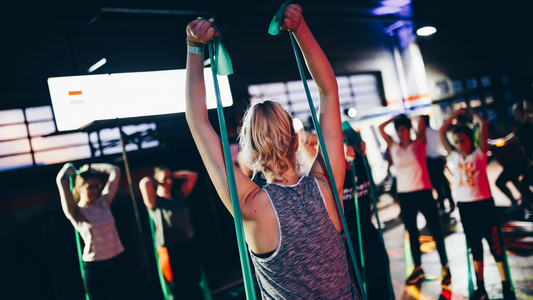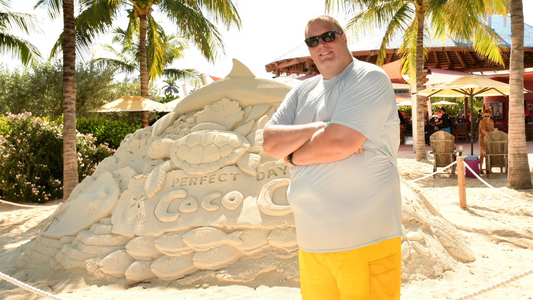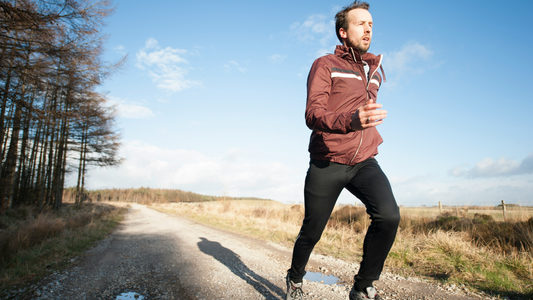

How to Deal with Fatigue After Working Out
Working out and pushing yourself means dealing with a good amount exhaustion after your exercise is all said and done. This feeling is nothing new for athletes and fitness enthusiasts, but it can be overwhelming, especially if you don’t know how to manage or alleviate post-workout fatigue.
Because we expend so much energy when exercising, our body starts to feel tired, but there are actions we can take for a more efficient recovery. Knowing how to deal with fatigue after working out is important to everyone, no matter where you are on your fitness journey.
Recovery Starts With Prevention
The first step to managing your post-workout fatigue is being proactive. Staying hydrated, fueling your body, and getting enough sleep are all pieces of the puzzle. Doing a proper warm-up before you exercise can also assist in tampering down the exhaustion you might feel after completing a workout.
Without doing these things, not only will you increase the likelihood that you experience fatigue after working out, you also increase your risk of injury. When we aren’t properly hydrated and fueled, we aren’t able to physically perform as well as we should be able to.
Additionally, make sure your workouts match your fitness level. A common reason people who workout feel fatigue is because they go too hard too soon. If you aren’t physically prepared for the activity, it’s easy to overdo it, leading to even more tiredness, as well as potential injury.
Top 5 Post-Workout Recovery Tips
The following tips will help you deal with fatigue after exercising. Remember, your body does need rest so ensuring that you get proper rest between workouts is important, as is completing effective recovery activities.
Rehydrate
Dehydration can cause muscles to be even more fatigued after a workout. We lose so much water through sweat when exercising that replenishing your body should be a top priority. Also, remember that when we workout, we aren’t just losing water. We’re also losing essential minerals — electrolytes — which our body needs for proper function.
A sports drink, like Gatorade or Powerade, can provide you with both the water your body craves and the electrolytes it needs.
Eat (or Drink) a Recovery Meal
There’s a reason you always see weight lifters grabbing a shake after the workout — our bodies need the protein! Exercise uses a lot of our muscle power, and as we get stronger, our muscle fibers will tear and rebuild. Additionally, overworked muscles are prime targets for sprains and strains, especially if they aren’t being taken care of properly.
A recovery meal or recovery shake provides your body with necessary protein to begin the recovery process and support. Scientists suggest around 20 grams of protein after intense physical activity.
For some, a pre-made shake or protein powder is the way to go. This is often the easiest choice. Otherwise, think about putting together a meal with lean, clean proteins like a protein bar, tuna, or chicken.
Cold Plunge and Icing
If you have access to a recovery facility, taking a cold plunge post workout can help you recover faster. Cold plunges reduce inflammation, soreness, and stiffness in muscles. If you have never done a cold plunge before, start with a 3-minute plunge. This is the most recommended length.
Don’t have access to a cold plunge? Simply icing your muscles will have a similar effect. Target the sorest spots to reduce inflammation and promote proper healing.
Stretching
Never skip static stretching after your workout. It’s easy to think stretching is no big deal, but it really can alleviate some of your post-workout fatigue. Often, we feel stiff after a workout, especially if we cool down and immediately sit down or find ourselves in stasis.
If we stretch after a workout, we give our body time to cool down while also encouraging better blood flow through our muscles. Increased blood flow means increased oxygen, and increased oxygen means faster recovery!
Additionally, stretching helps our muscles relax, which they desperately need after a hard workout. Even spending just five minutes on a simple stretching routine can make a difference.
Just Rest
Fueling, stretching, and icing are important parts of recovery, but sometimes your body just needs to rest. Don’t deny yourself the need to shut your eyes for a few moments or take a nap. If you are really tired, then this may be what your body is craving. The most important part of any recovery regimen is listening to what your body is telling you and acting accordingly.
Track Changes to Your Shape Using ZOZOFIT
The following

![zf-w-[168px] zf-h-[40px]](http://zozofit.com/cdn/shop/t/15/assets/logo-desktop.png?v=117713855448369080381753069598)


